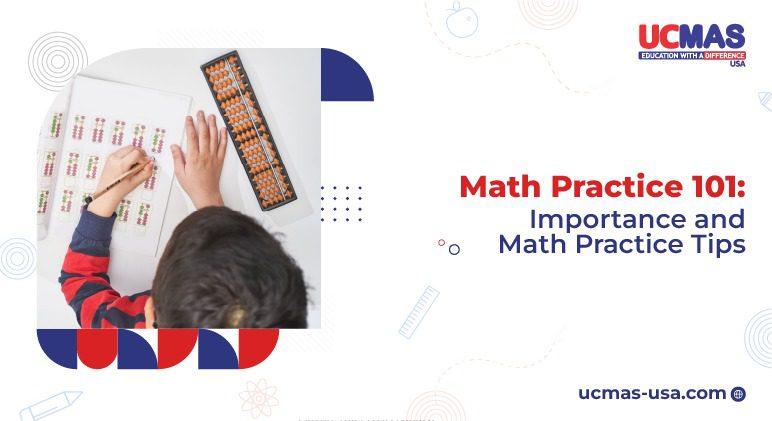Math! Some students love it, and some absolutely detest it. As parents, you are constantly trying to help your Child generate an affection for the subject. What is your go-to method for helping them embrace the daunting giant of math? Well, most parents say it’s practice.
Think of it like this: if you don’t like a particular thing or subject, you obviously don’t want to spend too much time with it. In such cases, does practicing math really help a student who doesn’t like math? Is there any way that practicing math could be more fun and interactive, so that not only do kids want to practice it, but they eventually grow to like the subject? Let’s discuss this possibility and more in this blog.
Importance of Practicing Math
Firstly, to inculcate the habit of math practice, we need to understand how it helps the students. So let’s get to the core of this discussion and find out why practice is key to mastering math.
Solidifies Understanding
By practicing math or any skill, students learn to apply concepts repeatedly, which develops a deeper understanding of the matter. Through constant practice of math concepts, they encounter different scenarios and find different approaches to solving them. This solidifies their grasp of mathematical principles rather than just by-hearting formulas and concepts.
Fosters Problem-Solving Skills
Regular practice of mathematical concepts hones critical thinking and problem-solving abilities. By encountering diverse problem types and approaches, students learn to devise strategies, think critically, and adapt their methods to suit different scenarios.
Enhances Retention
Repetition is key to the retention of knowledge in long-term memory. Regular practice helps students reinforce what they have learned and reduces the chances of forgetting concepts and math principles over time. Retention of knowledge is crucial in math concepts that build up on each other, making practice indispensable.
Boosts Confidence
Practice makes perfect; we have all heard this quote, or at least variations of it. With regular practice and an in-depth understanding of mathematical concepts, students gain confidence in their skills and abilities. This confidence helps them overcome the fear of math, excel academically, and approach learning with a positive attitude.
The importance of practice in learning math cannot be overstated, as it offers numerous benefits that contribute to a student’s overall proficiency and confidence in the subject.
How to Get the Best Out of Your Math Practice?
Here are some tips that can help students practice math effectively.
Consistent Practice Routine
Just like any skill, regular practice is key. Establish a consistent routine for math practice, whether it’s daily mental math practice or weekly sessions with times tables and worksheets. Consistency builds a routine and reinforces learning.
Utilise Varied Resources
Variety is the spice of math! Supplement traditional math learning techniques with interactive worksheets, educational games, flashcards, mental math, and other interesting alternatives. This variety keeps practice engaging and caters to different learning styles.
Focus on Understanding, Not Just Memorization
Encourage your child to grasp the underlying concepts rather than just memorising formulas or multiplication tables. Understanding the “why” behind mathematical rules fosters deeper understanding and makes problem-solving more intuitive.
Encourage Exploratory Learning
Motivate your child to experiment with different problem-solving strategies and approaches. Let them explore math in everyday situations, from measuring ingredients while baking to calculating discounts while shopping.
Review and Reflect
Revision of concepts and skills is crucial to reinforce learning, identify and correct mistakes, and solidify understanding. Include a revision session with the practice schedule to ensure retention and proper application of concepts learned. Reviewing and reflecting on the practice session not only deepens understanding, it also enhances confidence, improves performance, and helps kids master mental math and other arithmetic skills.
By following these strategies, you can ensure that your child’s math practice is not only effective but also enjoyable. Remember, the goal is not just to excel in math but to foster a lifelong love for learning and problem-solving.


